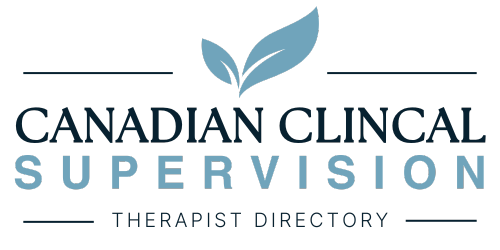Being a clinical supervisor can be rewarding career. You’re furthering the profession, enhancing client-care all while building an additional revenue stream. However, it goes without saying that being a clinical supervisor comes with additional responsibilities. As you build your supervisory caseload, you’ll come across various ethical issues, professional challenges, and accept additional professional liability. As a seasoned therapist, you already have the knowledge, skills, and experience to provide clinical supervision. But this doesn’t mean that you feel ready for the challenges ahead.
This is where additional clinical supervision training can come in handy.
Unfortunately, many graduate programs do not prepare therapists to become clinical supervisors. Yet, it’s an ethical obligation that therapists receive clinical supervision throughout our practice. As a clinical supervisor, you may need continuing education to learn how to structure a clinical supervision session, how to manage ethical issues, as well as build supervisory strategies to provide the best possible support to your supervisees.
So, where can you find clinical supervision trainings in Canada?
This article will share 3 clinical supervision trainings in Canada for Canadian clinical supervisors.
Clinical Supervision Success at PESI
If you like asynchronous learning, PESI offers the Clinical Supervision Success course which features Dr. George B. Haarman, an expert and author in the field of clinical supervision.
According to PESI’s website, this course sets out the foundation for handling specific, real-world scenarios that, as a supervisor, you’ll likely come across while maintaining ethical boundaries. In the course you’ll learn:
- How to effectively supervise diverse populations;
- Identify legal issues and avoid liability; and
- Strengthen communication skills with proven communication techniques.
What’s great about this course is that it’s designed for both aspiring, new and seasoned clinical supervisors. Through the teachings in this course, you can enhance your clinical supervisory skills and learn how to navigate risk, liability and ethical issues that come with providing clinical supervision.
Providing Good Clinical Supervision at APT
Another asynchronous learning option is Providing Good Clinical Supervision offered by the Association for Psychological Therapies (APT) presented by Dr. William Davis. According to the APT website, in this course you’ll learn:
- The foundational concepts of supervision, including the models of supervision;
- How to develop contracts with supervisees; and
- Skills for managing ethical issues in supervision.
Although, I haven’t taken this specific course, I have taken courses through APT with Dr. Davis. In my opinion, his courses are easy-to-follow, engaging, and informative. He also includes practical activities to help build upon theoretical concepts.
Clinical Supervision Certificate at Wilfrid Laurier University
Finally, Wilfrid Laurier University (WLU) continuing education department offers a Clinical Supervision Certificate. According to the WLU website, the certificate deep-dives into theoretical concepts and models of supervision. Topics of the certificate program include, but not limited to:
- Clinical supervision frameworks
- Ethical issues and considerations
- Safe and effective use of self; and
- Providing culturally competent clinical supervision.
Although, all courses within the Clinical Supervision Certificate are currently delivered remotely. Unlike the two previous clinical supervision training courses mentioned in this article, the Clinical Supervision Certificate program is synchronous. In other words, you’ll need to register for an upcoming date and attend the course live on those dates. If you’re someone who learns better in-class, then this course clinical supervision training is for you.
Conclusion
As a clinical supervisor, building confidence in yourself and your clinical abilities will come with practice. However, if you’re anything like me, having a training under your belt can help alleviate some of the imposter syndrome that may arise. Whichever clinical supervision training you choose will help you develop valuable skills that will benefit you and your supervisees for years to come.
Disclaimer #1:
Some links listed in this article are affiliate links where Evaspare Inc. receives a small monetary compensation, at no extra cost you, when you click on and purchase affiliate products.
Disclaimer #2:
This article is for informational purposes only and is not a personal review.

